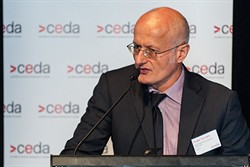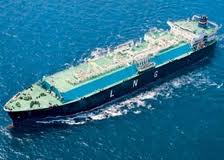EFIC sees Australian economy make complex transition to meet new international financial uncertainty

 GLOBALLY, economic and trade growth seemed pretty dull throughout 2013. But Australia's Export Finance and Insurance Corporation (EFIC) believes things should finally pick up in 2014.
GLOBALLY, economic and trade growth seemed pretty dull throughout 2013. But Australia's Export Finance and Insurance Corporation (EFIC) believes things should finally pick up in 2014.
According to EFIC chief economist, Roger Donnelly, the US ‘Quantitative Easing' (QE) tapering is expected to mark 2014 but is unlikely to cause an emerging market crisis. However, he said, it could place overextended companies and industries under strain.
EFIC's just-released report, World Risk Developments, which looks back at 2013 and ahead to 2014, pointed out that Australian resource export volumes began to expand rapidly this year as new capacity from the investment boom went into production. However, it is likely to ramp up much further over coming years.
A large medium-term uncertainty for Australia is where commodity prices settle once the supply response to the earlier price boom completes. Commodity prices and the real exchange rate probably have further to fall, which augurs well for the non-resource export outlook.
EFIC is still anticipating a modest world rebound.
"With 2013 proving to be disappointing, most forecasters have shunted their hopes for a global economic rebound into 2014," Mr Donnelly said. "But they have resisted the temptation to forecast a sharp bounceback.
"Most see a return to the historical average of 3.5 percent or a little higher."
Over the longer term, Mr Donnelly sees "QE taper talk" hitting emerging markets. For example, when the US Federal Reserve outlined how tapering was imminent in reports this week, the US stock markets rose, indicating securities markets in the US have already factored in tapering for 2014.
Mr Donnelly said musings by Federal Reserve officials about the scaling-back of quantitative easing caused big sell-offs in various emerging economy financial markets back in May and subsequently until now.
"Some Cassandras even started to worry about Asia-vu all over again," Mr Donnelly said, referring to analytical models seeing another Asian financial crisis.
"In fact, the worst didn't happen, and nor do we think it will in future, because economies have learnt a lesson from the Asian financial crisis and built buffers against capital outflows.
"Still, it will be important to watch South East Asian companies catering to the domestic market that have reportedly made large unhedged US dollar borrowings in industries like property development, retail and food."
Resource exports outpace non-resource exports
Mr Donnelly said it was hard not to see Australian resource exports hold their strength, but in different ways.
"In Australia, resource exports have been outpacing non-resource exports ever since the commodity supercycle got underway a decade ago, and 2013 continues this trend," MrDonnelly said.
"There is, however, a difference this year. Whereas past growth of resource exports was price-driven and volume-constrained, this year it is price-constrained and volume-driven.
‘Since the commodity supercycle ended, resource exporters are having to absorb price cuts. Yet the large amount of resource investment in recent years has boosted capacity and supported a strong expansion of volumes, particularly of iron ore," he said.
"Resource exports are likely to continue to grow strongly in 2014 and beyond as more and more investments reach completion," MrDonnelly said.
"LNG will expand particularly rapidly, almost four-fold over the next four years."
Though non-resource exports have been struggling, EFIC sees the Australian dollar depreciation since earlier this year, and the likelihood of further currency weakness, will give resource exporters some boost next year.
"The big uncertainty facing Australian exporters into the medium term is how far commodity prices will fall as worldwide supply capacity expands to meet the increased demand that has emerged from ‘Chindia' and other emerging economies," Mr Donnelly said.
"One view is rapidly expanding resource export volumes and prices that plateau well above their long-run average will be perfectly sufficient to enable Australia to pay its way in the world. The A$ will stay strong, and non-resource exports will stay weak.
"At the other extreme is a view advanced by Professor Ross Garnaut in his just published book, Dog Days: Australia After The Boom. He is much more bearish on resource export volumes and prices, and so thinks non-resource exports will have to make a bigger contribution to the balance of payments, induced through a 20-40 percent fall in the exchange rate."
ends

